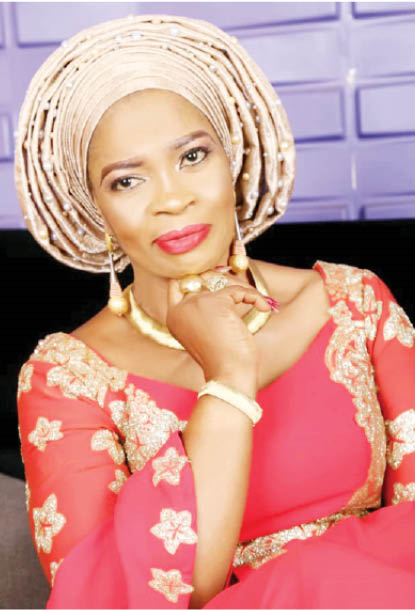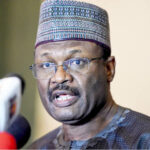Engineer Janet Febisola Adeyemi is the President of Women in Mining in Nigeria. Recognised at the Inspirational Award for 100 Women in Mining in the World recently in the UK for her role in the mining sector in Nigeria, she says the perception that mining is a male-dominated field is wrong and that many women are excelling in the sector.
How did you start out in mining?
I read Geology at the Obafemi Awolowo University (OAU), Ile-Ife. But when I graduated, there was not much mining activity going on in the country. That was in the late 70s , so naturally, when I wanted to serve, I went to an oil company. And then even in the oil companies, women were not allowed onshore. Then the closest thing to geology was drilling of borehole and I was involved in the supervision.
In my undergraduate days, we went out for excursion and I saw the exploration of bitumen, so I got interested. And I saw the mining potentials we have as a country, so it was somehow locked up at the back of my head.
When I came to the National Assembly, I never forgot the potential I saw in our mining sector. Because then, we were looking at the ways to improve the economic potentials of the country.
So, I started with the Bitumen Development Bill. I presented papers on this at many forums which earned me the name “Madam Bitumen” in the National Assembly.
And again, because I was in the Solid Minerals Committee in the House, I made people see the potentials in that area. And because we travelled for international conferences, I saw women and they said they were Women in Mining. When I got back from one of those conferences, I went to Rayfield in Jos and I saw illegal mining. I saw women doing mining at artisanal level with children with little or no education on mining. They were doing it because that is the way they could earn money. So, I thought we could form the Association of Women Miners.
What did you hope to achieve when you started Women in Mining in Nigeria?
Before, there were not many women in the mining sector. There were no women that were noticeable in the sector. But the narrative has changed. Today, we have female senators that are interested in mining and have invested in mining.
People are in the Women in Mining association for different purposes. We have people like me who are career people in mining who studied geology and mining engineering. We have women in the mining sector who were hitherto neglected, now they have an association to scream out and say no to the negative impact of mining in the community of which women and children are the most vulnerable.
What we are doing is to engage government. We have women who own licenses and are mining. Then we have women that are into trading. Some of them trade gemstones and others like sapphire. We are about 1,500 and are expanding across the states.
What is the association doing to help the artisanal miners, especially the women among them?
You qualified them as artisanal miners, but many of them are labourers who provide menial services. Some just break stones and sell without adding value to what they do. Some come down with glaucoma because they don’t have protective lenses. These are the kind of things we are trying to correct, and we do that by building their capacities.
Recently, we started some lecture series, and with time we are going to do it in local languages.
But many perceive mining as a male-dominated field.
I don’t want to agree that the mining sector is male-dominated. That is one of the perceptions we want to erase. In other climes, like Scotland, women were the ones who championed mining. This days, technology and IT has helped greatly for young women who want to be in the mining sector. Most of the men who sit in their offices in the mining sector, are they the ones who work on the fields? No. Their money works for them. So, women can excel in mining. It was male-dominated because women were not given the opportunity. And now, that there is opportunity, women are coming on board.
How lucrative is the mining sector?
Mining business is not one of those quick-win ventures, especially when you are into real mining, there is no quick-win. For career people, you have no problem because whoever engages you will pay you. But for those who are in the operational services, who are investors, you don’t mine today and start getting results immediately. The gestation period is much. It could be two, five, 10 years. It’s is for those that are determined and ready to dirty their hands.
Do we have many women who have licence to mine?
They are so many. Some have been in the mining sector for many years and have trained children from income gotten from the business. Then some have licences and people working for them.
What have been your achievements being the President and founder of Women in Mining in Nigeria?
Today, Women in Mining have been mainstreamed into the Ministry of Mines and Steel Development.
Also, fame of the association is spreading. We are expanding across the states.
When I am stepping aside, I would like to see a situation where Women in Mining is firmly rooted in every chapter. We started building the capacity series in various languages. Because we are aware that a number of women are not educated. We caught the attention of the Australian Embassy doing that. They are partnering with us and we are collaborating with some organisations on our health and educational projects. Already, Women in Mining is in the map and in the international scene. I was recognised at the Inspirational Award for 100 Women in Mining in the World which held recently in the UK.
How do you think government can encourage more women in this sector?
When the government talk about diversification it began focusing on agriculture and mining. The two are related. Because when you are opening up through mining, you can fill the space with something for a particular season. But for it to be worthwhile for women, government must be willing to support women in mining in restructuring such that every state where something is being mined has an effective chapter.
Then building the capacity of women in mining to understand the dynamics of the trade.
Also, the rural women in mining must be educated and enlightened. What killed them in Shakira, they took the lead they mined and started pounding it in their mortar which they used in pounding their food. So, if they knew that what they mined was also poisonous, they would have avoided putting it close to what they eat. Nobody wants to die.
Tell us about you educational qualification?
I have my primary school and secondary school certificates. I had my first degree in geology from OAU and masters was at London University of Technology, UK. Then an honourary Phd from Columbia University, 1992. I read law at Open University and I was at the National Assembly from 1999 to 2003 . In 2003 to 2007, I served as special adviser to the president on National Assembly matters.

 Join Daily Trust WhatsApp Community For Quick Access To News and Happenings Around You.
Join Daily Trust WhatsApp Community For Quick Access To News and Happenings Around You.


